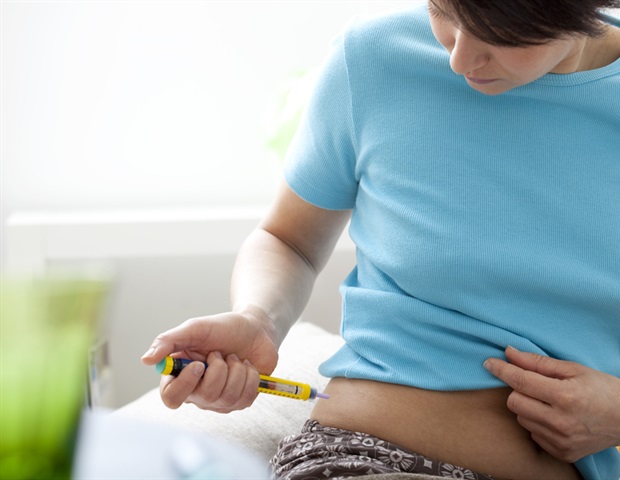Type 1 diabetes is an autoimmune disease leading to an impaired glucose metabolism and requires life-long administration of insulin. While the cause of the autoimmunity reaction is still unclear, viral infections in young children are proposed to be critical environmental factors leading to type 1 diabetes. An international team of researchers from the Global Platform for the Prevention of Autoimmune Diabetes (GPPAD) now reports an increase in the incidence of islet autoimmunity in young children with a genetic risk for type 1 diabetes who had a SARS-CoV-2 infection. The findings were published in the journal JAMA.
Type 1 diabetes is an autoimmune disease. In this condition, the immune system reacts against and eventually destroys islet beta cells in the pancreas. These cells are responsible for producing insulin, a hormone that is vital for regulating glucose levels and for maintaining the body’s energy requirements. Both genetic and environmental factors are involved in the pathogenesis of the autoimmunity with viral infections being one of the factors thought to increase the risk of developing type 1 diabetes. With the outbreak of the COVID-19 pandemic, there was an increase in the incidence of type 1 diabetes. However, it was not clear if this was due to a SARS-CoV-2 infection and if infection led to an increase in islet autoimmunity.
We had a chance to follow children from the Primary Oral Insulin Trial (POInT) and link the timing of SARS-CoV-2 infection to the appearance of islet autoantibodies.”
Marija Lugar from the Center for Regenerative Therapies Dresden (CRTD) and Faculty of Medicine Carl Gustav Carus at TUD Dresden University of Technology, Study Author
POInT is a study conducted in Germany, Poland, Sweden, Belgium, and the UK. It is led by Prof. Anette-Gabriele Ziegler from Helmholtz Munich Institute of Diabetes Research and the Technical University of Munich School of Medicine. POInT recruited babies from 2018 to 2021 with a genetically defined risk for developing islet autoantibodies of at least 10%.
Risk of developing islet autoantibodies increased after SARS-CoV-2 infection
Autoantibodies against pancreatic islets are the first sign of type 1 diabetes and indicate the start of the disease. To establish if SARS-CoV-2 infection influenced the development of early signs of type 1 diabetes, the researchers tested for islet autoantibodies and SARS-CoV-2 antibodies in two to six-month intervals from age 4 to 24 months in 885 children. 170, or almost 20% of these children, developed antibodies to SARS-CoV-2 during the pandemic indicating that they had been infected with the virus. The frequency of children who developed islet autoantibodies was over twice as high in children who had a SARS-CoV-2 infection compared to those without the infection. “The timing of the islet autoantibody appearance in relation to the SARS-CoV-2 infection in these children was striking. The most remarkable finding, however, was that the risk of developing islet autoantibodies was highest in the children who were infected before they were 18 months old, and in particular at around one year of age,” explains Prof. Ezio Bonifacio, research group leader at the CRTD and senior author of the study. “These children had around 5- to 10-fold higher risk for developing islet autoantibodies that lead to type 1 diabetes later in life. It is such a critical age for children who are genetically at risk for the disease and key to why we were able to see the association.”
Prior studies had found a correlation between type 1 diabetes incidence and COVID-19 diagnosis, but this is the first to associate SARS-CoV-2 infection with the start of islet autoimmunity.
Further studies needed to determine the potential for prevention
It is important to note that although there was a clear temporal association between SARS-CoV-2 infection and the development of islet autoantibodies, many children developed islet autoantibodies without COVID-19.
“Type 1 diabetes is not a one-factor disease,” says Ezio Bonifacio. “However, this study again shows the link between a virus infection and type 1 diabetes right at the very start of the process and at the critical age of susceptibility.”
Although the exact mechanism behind the increased risk for islet autoimmunity in young children is unknown, the findings may help find ways to prevent type 1 diabetes.
“Since there is a vaccine available, it begs the question as to whether vaccination against viruses associated with islet autoimmunity could be an avenue for prevention of at least some cases of type 1 diabetes,” says Anette-Gabriele Ziegler. “Type 1 diabetes is a lifelong disease affecting millions of children and adults worldwide. We are convinced that investing into early prevention strategies such as those tested in GPPAD, is important to curtail the rising incidence of this disease in children.”
Source:
Journal reference:
Lugar, M., et al. (2023). SARS-CoV-2 Infection and Development of Islet Autoimmunity in Early Childhood. JAMA. doi.org/10.1001/jama.2023.16348.
